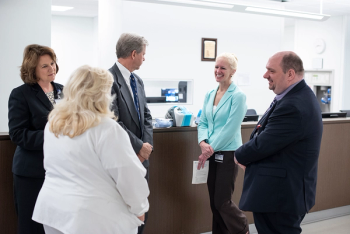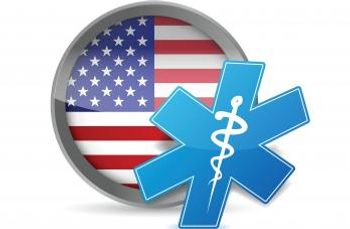
To help ensure your healthcare organization doesn’t get left behind, we’ve assembled the top six challenges the industry will face in 2019.

To help ensure your healthcare organization doesn’t get left behind, we’ve assembled the top six challenges the industry will face in 2019.

FDA cleared the first generic tablet version of a top-selling epilepsy drug.

The Five-Star Quality Rating System isn’t just a mechanism to improve the patient experience; it has also changed the industry from an insurer’s perspective. Here are three ways to buy into the CMS rating system as a means to continuous improvement.

A new study has revealing findings about health literacy and care.

New legislation designed to curb drug costs comes on the heels of many pharma makers raising prices this year as well as payers saying they expect higher drug acquisition costs.

FDA approved a record number of novel treatments in 2018.

With a new ruling against the Affordable Care Act (ACA), many worry about the fate of the biosimilar market. But will it be as detrimental as feared?

As the industry continues to look for strength in scale and strategic push toward ever-increasing verticalization, large-scale industry mergers and acquisitions will continue to be the norm during 2019-this and other 2019 predictions based on the digitization of healthcare.

Good company culture doesn’t just happen, you have to take charge and plan for it.

Here’s what healthcare organizations will face in the year ahead, and expert advice on how to deal.

Here are certain facts that every executive responsible for managing populations at risk for prescription drug misuse should know as they make policy decisions affecting patient care and financial management.

This massive partnership is breaking down barriers and improving patient care.

What experts say will be the year’s biggest problems, and what can be done about them.

Soon after FDA warned the manufacturer involved in a massive nationwide recall of valsartan- and losartan-containing drugs, the recall is expanding. Find out why.

Two new therapies approved by FDA signal significant advancement in treating rare blood diseases.

Managed Healthcare Executive asked key opinion leaders: “What is your favorite movie that you recommend to other healthcare executives?” Here’s what they said.

Moving up the corporate ladder can be frustrating-here’s are six tips from industry experts

Design Thinking is a great way to get your organization focused-here are three Design Thinking tools that you could put into practice today.

Executive-level decisions can be complicated. Here’s seven ways to turn to others to gain valuable insight.

Adrienne Boissy learned early on in her career that being present in the moment for her patients was more important than trying to fix them.

COPD is a costly disease for patients and payers alike-but in order to control costs, you must first know what’s behind them.

Telehealth helped Einstein Medical Center decrease readmissions and increase quality.

Autoimmune diseases often impact many organ systems and are complex, requiring a number of specialists to manage them. Here’s a snapshot of an interesting new model that addresses care challenges of these diseases.

Slightly less than in 2018, approximately 8.5 million people signed up to obtain health insurance for 2019 through the ACA marketplace exchange. Here are five things that may or may not have affected these numbers.


The behavioral healthcare delivery system is broken. Fixing it requires rapid, radical innovation that is supported and facilitated on a national level and includes both public and private innovation.

Fluoroquinolone antibiotics can increase the occurrence of rare but serious events of ruptures or tears in the aorta, FDA said in a new warning.

Maintaining provider data has been a longstanding challenge within the healthcare industry. CAQH identified five challenges among health plans and groups and a new solution.

Next year will bring many changes to healthcare. Here’s how leading hospitals will stay ahead of the curve when it comes to increasing patient engagement.